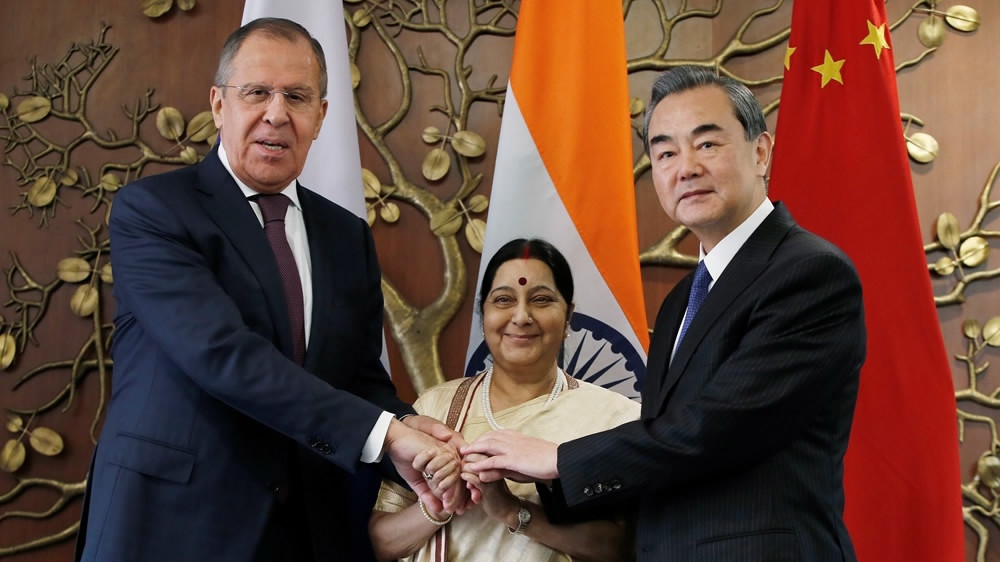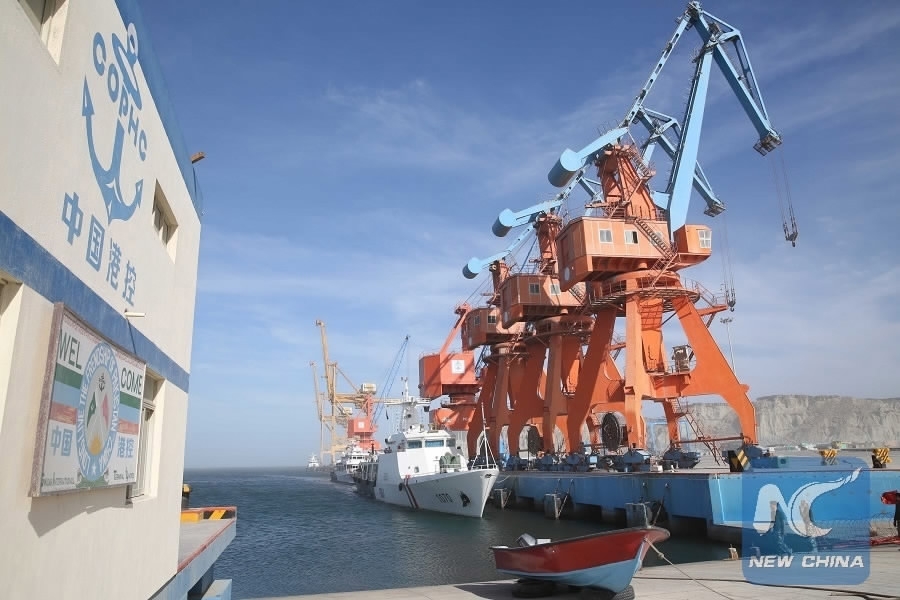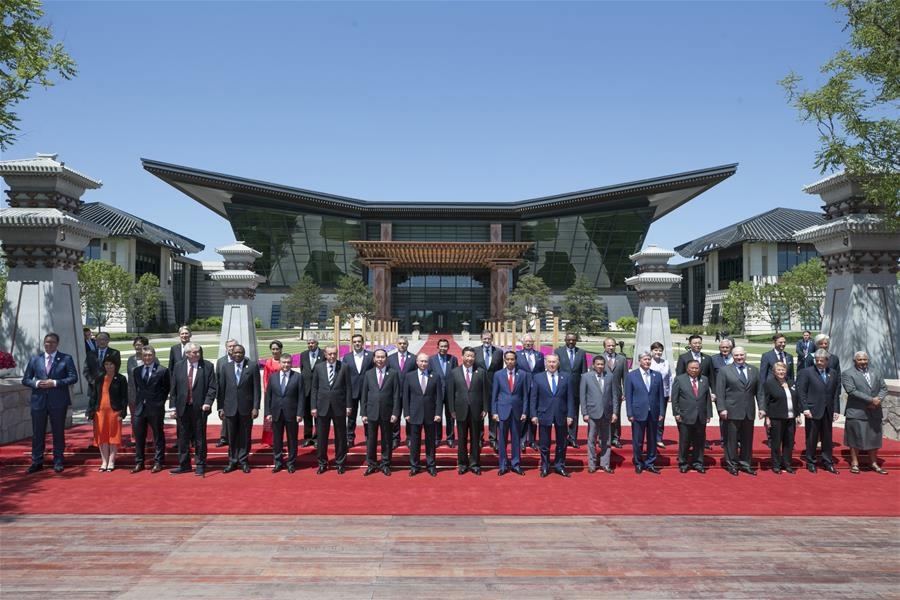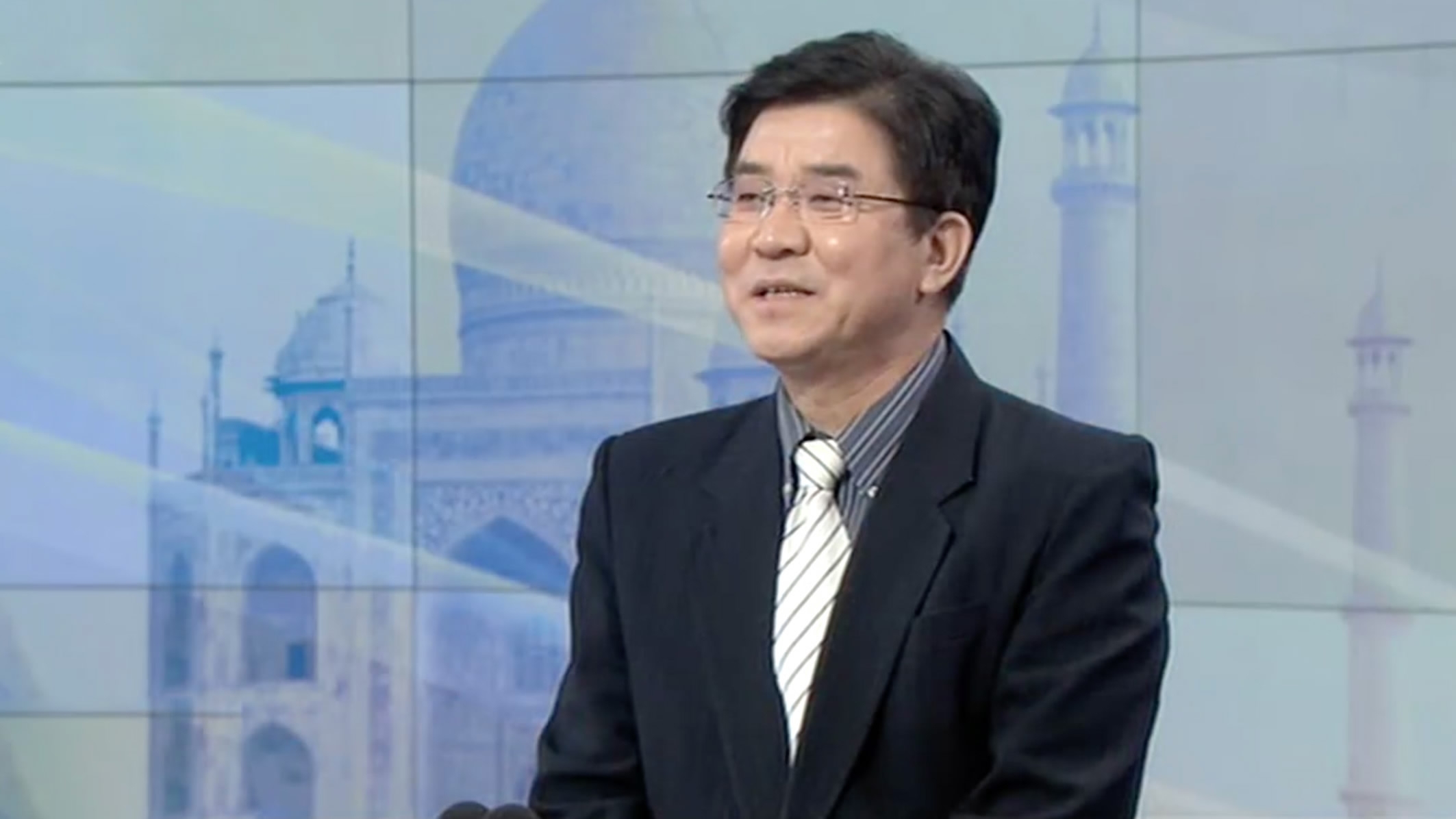
Politics
22:58, 11-Dec-2017
Russia urges India to join China's Belt and Road Initiative
By Wang Lei

India should not let political problems deter it from joining the China-proposed Belt and Road Initiative, Russian Foreign Minister Sergei Lavrov said on Monday in New Delhi after a trilateral meeting with Chinese Foreign Minister Wang Yi and Indian Foreign Minister Sushma Swaraj, Reuters reported.
India is concerned about the China-Pakistan Economic Corridor (CPEC) – a flagship project of the initiative – that passes through land controlled by Pakistan but also claimed by India.
Lavrov said India's reservations over the project were discussed during the meeting. "I know India has problems, we discussed it today, with the concept of One Belt and One Road, but the specific problem in this regard should not make everything else conditional to resolving political issues," said Lavrov.

March 22, 2017: Gwadar port area in Gwadar, Pakistan. The China-Pakistan Economic Corridor (CPEC) is a flagship project of the Belt and Road Initiative. /Xinhua Photo
March 22, 2017: Gwadar port area in Gwadar, Pakistan. The China-Pakistan Economic Corridor (CPEC) is a flagship project of the Belt and Road Initiative. /Xinhua Photo
Named after the ancient Silk Road, the Belt and Road Initiative was proposed by Chinese President Xi Jinping in 2013 to chart out new territories for international cooperation.
In May, China hosted the first Belt and Road Forum for International Cooperation in Beijing. A total of 29 foreign heads of state and government leaders attended the forum, with absence of India.
The initiative has so far gained the support of over 100 countries and international organizations, and more than 40 of them have signed cooperation agreements with China. India, after a two-month military standoff with China in the border region of Dong Lang (Doklam) this summer, still refuses to endorse the initiative.
As the 15th Meeting of the Foreign Ministers of Russia, India and China (RIC) takes place in the Indian capital, many expect Moscow to play the role as a mediator between Beijing and New Delhi.
"India, I am 100 percent convinced, has enough very smart diplomats and politicians to find a way which would allow you to benefit from this process," Lavrov said, noting that Russia and many other countries in Central Asia and Europe have signed up to the initiative to boost economic cooperation.

Chinese President Xi Jinping, foreign delegation heads and guests pose for a group photo at the Leaders' Roundtable Summit of the Belt and Road Forum (BRF) for International Cooperation at Yanqi Lake International Convention Center in Beijing, May 15, 2017. /Xinhua Photo
Chinese President Xi Jinping, foreign delegation heads and guests pose for a group photo at the Leaders' Roundtable Summit of the Belt and Road Forum (BRF) for International Cooperation at Yanqi Lake International Convention Center in Beijing, May 15, 2017. /Xinhua Photo
'More commonalities than differences'
In his address at a press briefing after their talks, the Chinese foreign minister called on the three countries to speed up the alignment of their development strategies and policies. The three countries should pay more attention to their cooperation and less attention to differences between them.
Wang also emphasized that the three countries should make clear that their cooperation was not directed against any nation.
"Both being big developing countries, China and India have far greater shared strategic interests than concrete differences, and far greater needs for cooperation than partial frictions," Wang said in his speech at the opening of the Symposium on International Developments and China's Diplomacy in 2017 on Saturday.
Swaraj told reporters on Monday that she agreed with her Chinese counterpart that the two sides should strengthen their mutual trust and "develop a better understanding" between them.

China, Russia and India are the "backbones" of the BRICS and the Shanghai Cooperation Organization (SCO) and important members of the United Nations, said Dong Manyuan, a senior research fellow at China Institute of International Studies. Dong stressed that the three countries have the obligation to maintain world peace, stability, prosperity and facilitate common development.
Commenting on the relations between China and India, he said the two developing countries have far more common ground than differences because they both regard economic development as their top priority.
The meeting also featured talks on issues such as fighting terrorism and addressing climate change.
3786km

SITEMAP
Copyright © 2018 CGTN. Beijing ICP prepared NO.16065310-3
Copyright © 2018 CGTN. Beijing ICP prepared NO.16065310-3